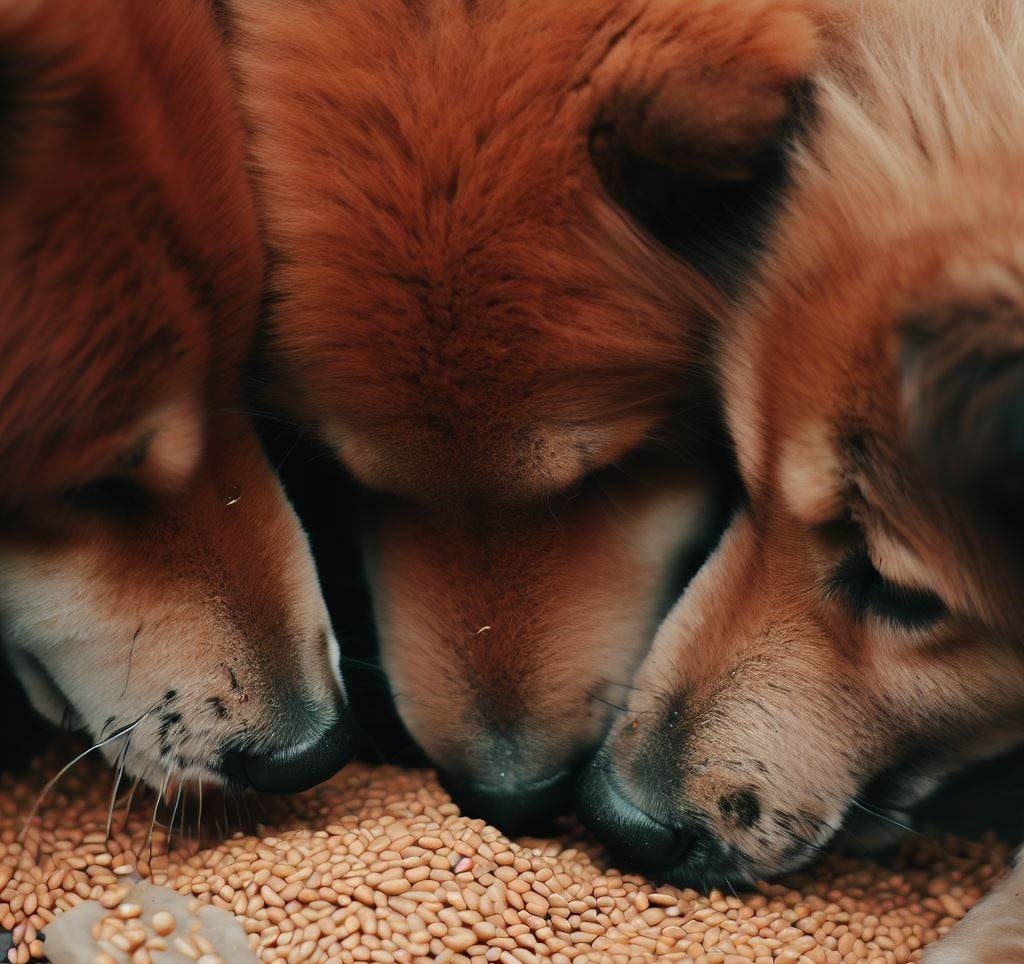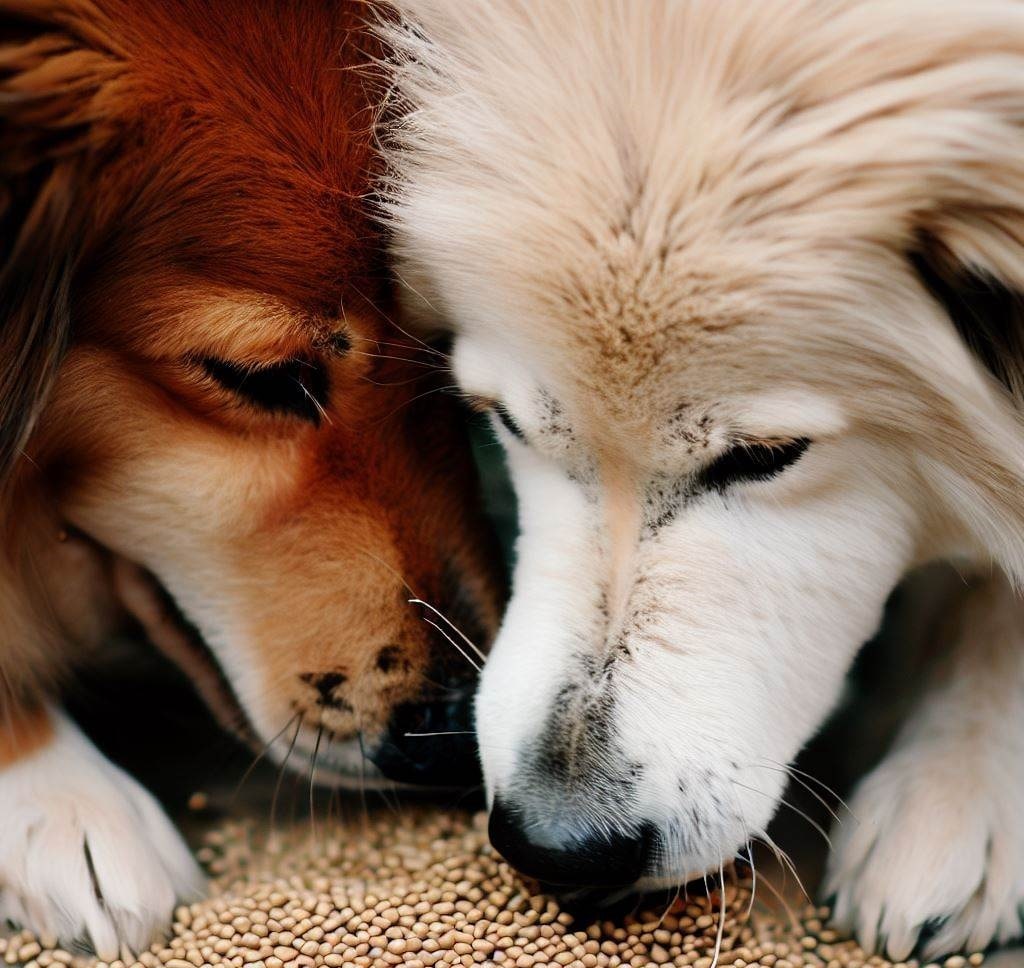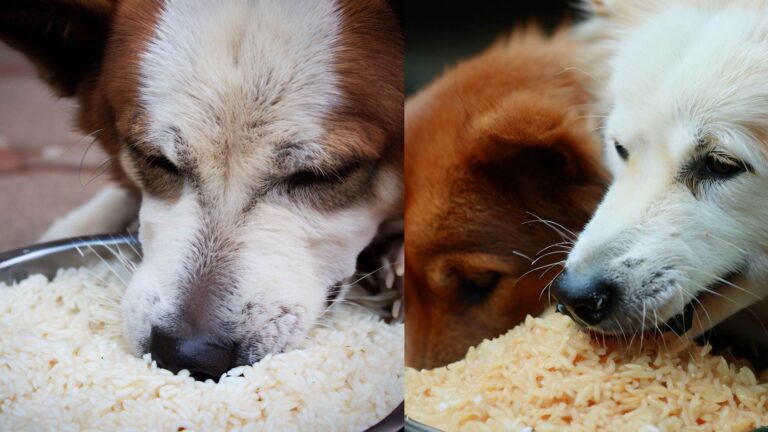When it comes to our furry friends, we often find ourselves wondering what is safe and healthy for them to eat. Sesame seeds are commonly used in various culinary dishes and are known for their nutritional benefits in human diets. However, before sharing any food with our canine companions, it is crucial to understand if it is safe for them.
In this blog post, we will explore whether dogs can eat sesame seeds and the potential benefits and risks associated with their consumption.
Table of Contents
Are Sesame Seeds Safe for Dogs?
The good news is that sesame seeds are generally safe for dogs to consume in moderation. They are not toxic or harmful to dogs when consumed in small quantities. In fact, sesame seeds offer several potential health benefits for canines. However, it is important to consider a few factors before introducing sesame seeds into your dog’s diet.

Benefits of Sesame Seeds for Dogs
- Nutritional Content: Sesame seeds are a rich source of essential nutrients such as protein, healthy fats, fiber, vitamins, and minerals. These nutrients contribute to a well-balanced diet and can support your dog’s overall health.
- Omega-6 Fatty Acids: Sesame seeds are abundant in omega-6 fatty acids, which are beneficial for maintaining healthy skin and promoting a shiny coat in dogs. Including small amounts of sesame seeds in their diet can contribute to their skin and coat health.
- Antioxidant Properties: Sesame seeds contain natural antioxidants such as sesamin and sesamol. These compounds have potential anti-inflammatory and immune-boosting properties, which may benefit dogs with certain health conditions.
- Fiber Content: Sesame seeds are a good source of dietary fiber, aiding digestion and promoting regular bowel movements in dogs. However, it is crucial not to overfeed them, as excessive fiber intake can lead to gastrointestinal upset.
Risks and Considerations
While sesame seeds offer potential benefits, it is essential to consider a few factors and potential risks associated with their consumption by dogs:
- Allergies: Dogs, like humans, can develop allergies to certain foods. Although rare, some dogs may be allergic to sesame seeds. If your dog shows any signs of an allergic reaction, such as itching, rashes, vomiting, or diarrhea after consuming sesame seeds, discontinue their intake immediately and consult a veterinarian.
- Choking Hazard: Sesame seeds are small and round, which can pose a choking hazard, particularly for small dogs or those prone to gulping down food without chewing. It is advisable to grind or crush sesame seeds before adding them to your dog’s food to minimize the risk of choking.
- High-Calorie Content: Sesame seeds are calorie-dense. Feeding them in large quantities or as a regular treat can contribute to weight gain in dogs. It is crucial to offer sesame seeds in moderation and consider your dog’s overall calorie intake to maintain a healthy weight.
- Added Flavorings: Be cautious when feeding your dog sesame seeds that are seasoned, flavored, or prepared with additional ingredients. Certain seasonings, such as excessive salt or artificial flavorings, can be harmful to dogs. Always opt for plain, unsalted sesame seeds if you decide to share them with your furry friend.
Feeding Guidelines
- Consult your veterinarian: Before introducing any new food into your dog’s diet, it is always a good idea to consult with your veterinarian. They can provide specific recommendations based on your dog’s age, breed, size, and overall health.
- Start with small quantities: Begin by offering a small amount of sesame seeds to your dog. You can sprinkle a few seeds on their regular food or mix them into a homemade treat. Monitor their response and observe for any adverse reactions.
- Observe for allergies or sensitivities: Keep a close eye on your dog after they consume sesame seeds for the first time. Look for any signs of allergies, such as itching, swelling, excessive licking, or gastrointestinal distress. If you notice any adverse reactions, discontinue feeding sesame seeds immediately and consult your veterinarian.
- Moderation is key: Sesame seeds should only be given in moderation. While they offer some nutritional benefits, they should not replace a balanced diet specifically formulated for dogs. Treat sesame seeds as an occasional addition to your dog’s meals or as a small treat.
- Grinding or crushing: To minimize the risk of choking, it is recommended to grind or crush sesame seeds before feeding them to your dog. This will make them easier to digest and reduce the likelihood of any choking hazards, especially for small dogs.
- Plain and unsalted: When offering sesame seeds to your dog, ensure they are plain and unsalted. Avoid giving them flavored or seasoned sesame seeds, as the additional ingredients may not be safe or suitable for dogs.
- Consider your dog’s weight: Sesame seeds are calorie-dense, so it is important to consider your dog’s weight and calorie requirements. Overfeeding sesame seeds can lead to weight gain and other health issues. Adjust their overall diet and portion sizes accordingly to maintain a healthy weight.
- Variety in moderation: While sesame seeds can be a healthy addition to your dog’s diet, it is important to provide a well-rounded and varied diet. Don’t rely solely on sesame seeds for their nutritional needs. Include a mix of high-quality dog food, lean meats, vegetables, and other appropriate dog-friendly ingredients.
Read More: Can Dogs Eat Spaghetti?
FAQs

Can dogs eat sesame seeds?
Yes, dogs can eat sesame seeds in moderation. They are generally safe for canine consumption.
Are sesame seeds toxic to dogs?
No, sesame seeds are not toxic to dogs when given in small quantities. However, always monitor your dog for any adverse reactions.
Are there any benefits to feeding sesame seeds to dogs?
Yes, sesame seeds can offer several benefits to dogs, including a good source of essential nutrients, omega-6 fatty acids for skin and coat health, antioxidants, and dietary fiber.
Can dogs be allergic to sesame seeds?
While rare, dogs can develop allergies to sesame seeds. If your dog shows any signs of an allergic reaction, such as itching, rashes, vomiting, or diarrhea, discontinue their consumption and consult a veterinarian.
How should I introduce sesame seeds to my dog’s diet?
Start by offering a small amount of sesame seeds to observe your dog’s response. Monitor for allergies or digestive upset. Gradually increase the quantity if your dog tolerates them well.
Can dogs eat sesame seeds in any form?
Dogs can eat sesame seeds in various forms, such as raw, roasted, or ground. However, avoiding flavored or seasoned sesame seeds is best, as additional ingredients may not be safe for dogs.
Can sesame seeds cause choking hazards for dogs?
Sesame seeds are small and round, posing a potential choking hazard, especially for small dogs or those prone to gulping down food. It is advisable to grind or crush sesame seeds before feeding them to your dog to minimize this risk.
How often can I feed sesame seeds to my dog?
Sesame seeds should be given in moderation as an occasional treat or addition to their regular meals. Avoid overfeeding them, as sesame seeds are calorie-dense.
Are there any risks associated with feeding sesame seeds to dogs?
While sesame seeds are generally safe, risks include potential allergies, choking hazards, and weight gain if overfed. Always consider your dog’s individual needs and consult with a veterinarian if you have any concerns.
Are there any alternatives to sesame seeds for similar health benefits?
If you’re looking for alternative sources of nutrients, omega-6 fatty acids, or fiber, consult your veterinarian for suitable options that best meet your dog’s dietary requirements.
Can dogs eat sesame seed sticks?
Sesame seed sticks are typically seasoned and may contain additional ingredients that may not be safe or suitable for dogs. It is best to avoid giving them to your dog.
Can dogs eat sesame seed bagels?
Sesame seed bagels are generally safe for dogs to consume in small quantities, but they should be plain and unsalted. Remove any toppings or spreads that may be harmful to dogs, such as onion or garlic.
Can dogs eat sesame seed buns?
Plain and unsalted sesame seed buns can be given to dogs in moderation. Ensure they do not contain any harmful ingredients, such as spices or seasonings.
Can dogs eat sesame seed oil?
While sesame seed oil is not toxic to dogs, it is highly concentrated and can cause digestive upset if ingested in large quantities. It is best to avoid giving your dog sesame seed oil.
Can dogs eat sesame-seed chicken?
Sesame seed chicken dishes often contain various seasonings, spices, and sauces that may be harmful to dogs. It is recommended to avoid feeding them sesame-seed chicken.
Can dogs eat sesame seed crackers?
Sesame seed crackers are typically flavored and may contain ingredients that are not safe for dogs, such as salt or artificial flavorings. It is best to choose plain, unsalted crackers as an occasional treat, if at all.
Conclusion
In conclusion, dogs can safely consume sesame seeds in moderation. Sesame seeds offer nutritional benefits, including essential nutrients, omega-6 fatty acids, antioxidants, and dietary fiber. However, it is crucial to consider the potential risks, such as allergies, choking hazards, and high-calorie content.
Always introduce new foods gradually, monitor your dog’s response, and consult with your veterinarian for personalized advice. Remember, a well-balanced diet formulated for dogs should always be the foundation of their nutrition.






